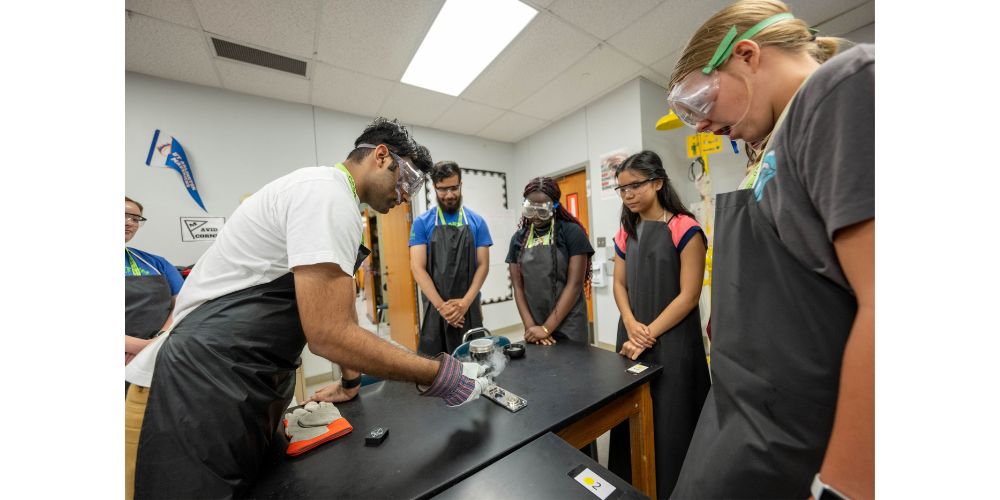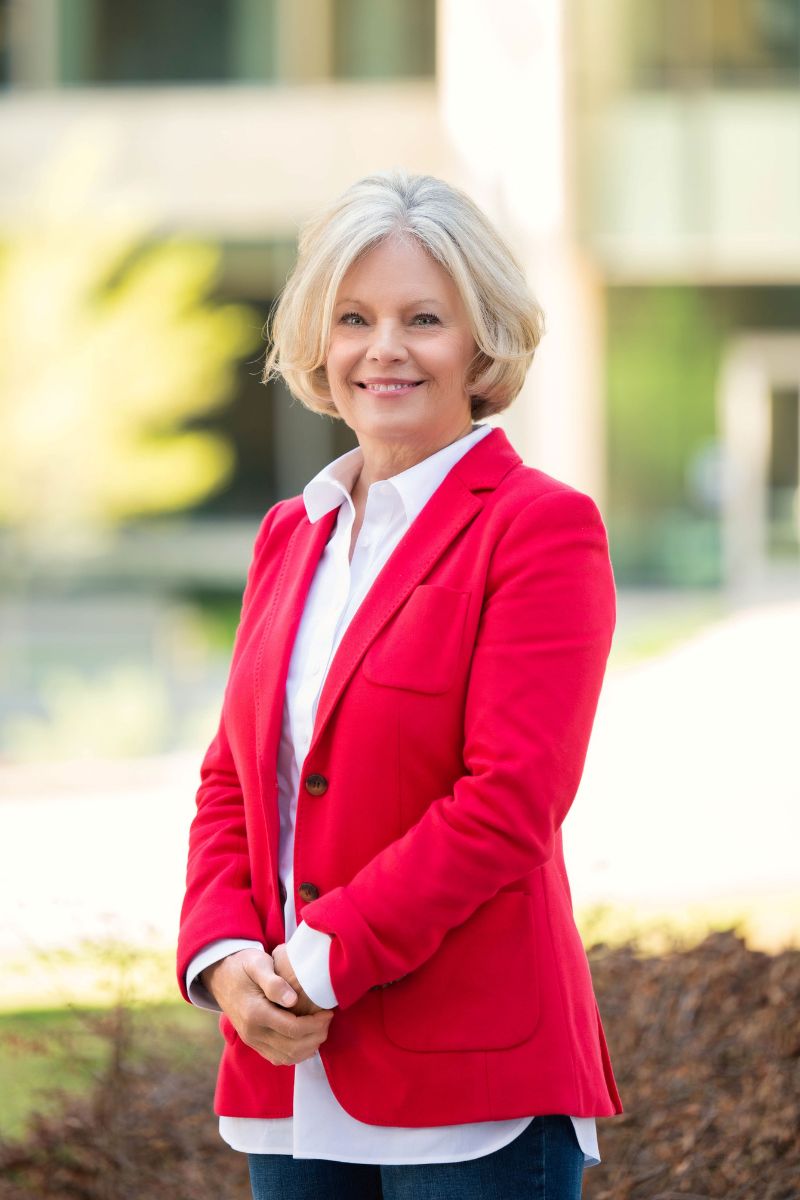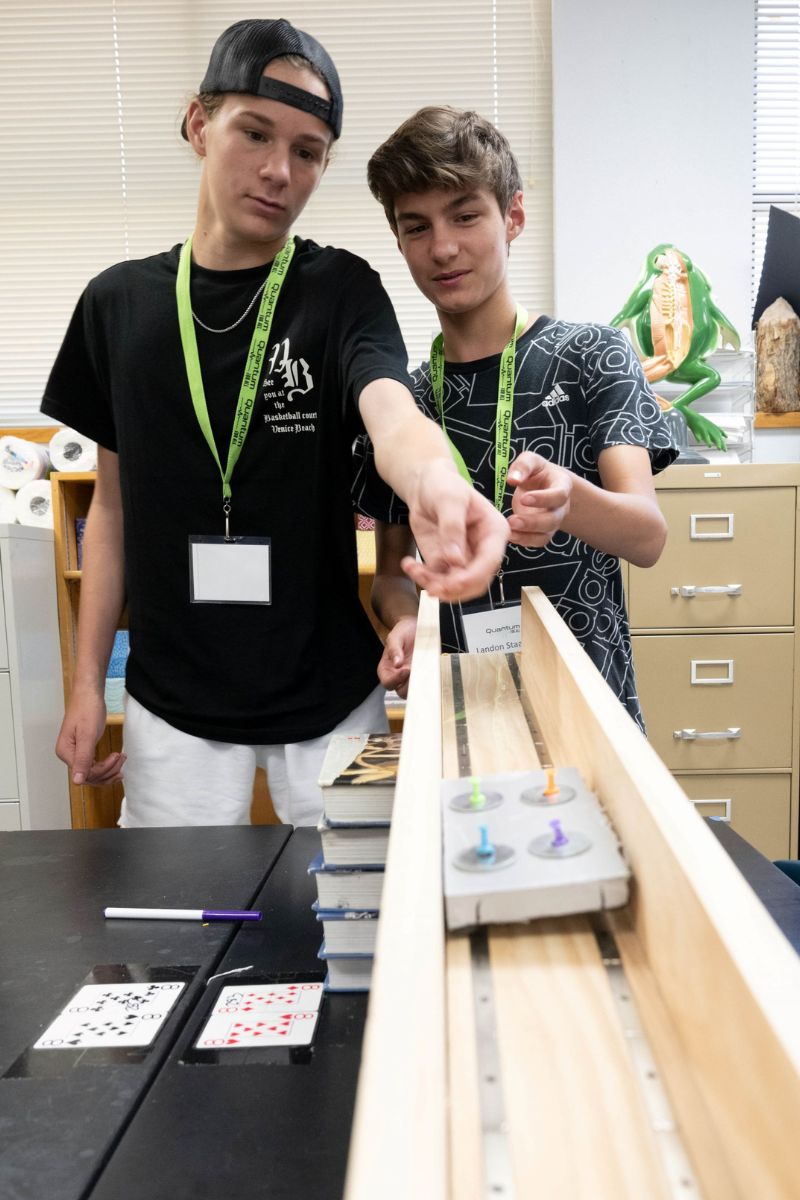On a mission to bring quantum physics to high school classrooms

Nearly 70 high school students and science teachers gathered at Arlington Martin High School to learn about quantum physics, thanks to a first-of-its-kind national pilot program called Quantum for All led by Karen Jo Matsler, assistant professor in practice and master teacher in the UTeach program at The University of Texas at Arlington.
“Quantum scares people. The general population feels you can’t teach this in high school classes,” Matsler said. “My goal is to give teachers the confidence to teach it when they return to their home districts.”

Although quantum physics is used for everything from cellphones to computers and MRI machines to cybersecurity, most students do not receive any education on its principles until late into their college careers. Matsler’s program aims to fill this learning gap by providing training and curriculum tools for high school science teachers, with assistance from a nearly $1 million grant from the National Science Foundation.
“The three-year program aims to answer the research questions: Does this program help teachers understand QISE concepts, so they are comfortable integrating it into their curriculum? Can QISE be taught to pre-college students?” Matsler said.
The June training began with a week of learning for 31 teachers hailing from 16 states. A few teachers in attendance were several UTA alumni who were trained initially by Matsler when they were students. This included Samad Virani (’20 B.S., Physics), who teaches chemistry at Uplift Luna Preparatory School, a charter school in Dallas. While studying at UTA, Virani was encouraged by Matsler to take education classes and obtain his teaching certificate in addition to his degree.
“I had received a scholarship through Dr. Matsler’s program as an undergraduate student at UTA, so when I saw a notice about attending this training for teachers, I jumped at the chance,” Virani said. “I am impressed by the approaches we took to make quantum engaging, and I’m looking forward to taking these activities back to the classroom.”
Virani and the other teachers who participated in Matsler’s training received a small stipend for their participation, as well as equipment to aid in their teaching of quantum physics in their own classrooms.
A few of the teachers present this year attended sessions held in 2022 by Matsler in sites around the country, including Arlington; Katy, Texas; Baltimore, Maryland; Provo, Utah; and Wisconsin Falls, Wisconsin.

“This is my second year. I attended last year’s session in Baltimore,” said Jakeb Rising, a math and science teacher at Conemaugh Township Area High School, a public school in Windber, Pennsylvania, located about two hours east of Pittsburgh. “I was able to take some of what I learned last year to my students.”
For the second week, 38 students from around the Dallas metro area attended a four-day camp taught by the teachers who learned the quantum teaching concepts the previous week. One of the hands-on lab activities included students using magnets and Styrofoam to design and create models simulating Maglev trains, which levitate above a metal track and can travel at high speeds. The connection to quantum was made by using liquid nitrogen to demonstrate quantum locking and quantum levitation. Ultimately students understood how a superconductor can support up to 70,000 times their own weight and can be used in engineering transportation systems.
Matsler’s passion to bring quantum physics to the high school classroom has also led the state of Texas to start including elements of the subject in Texas Essential Knowledge and Skills, the state curriculum standards set by the Texas Education Agency for public schools. According to Matsler, Texas is one of only a handful of states that have quantum principles as part of the required curriculum. Matsler also helped in the development of a national framework of QISE key concepts for grades K-12, which hopefully will be integrated into national STEM standards and curricula soon.
Next up for Matsler is analyzing and writing up the results of her three-year pilot project for presentation at meetings and publication in academic journals. This will also include what she and her teaching colleagues have found to be the best practices for incorporating quantum physics principles into high school lesson plans.